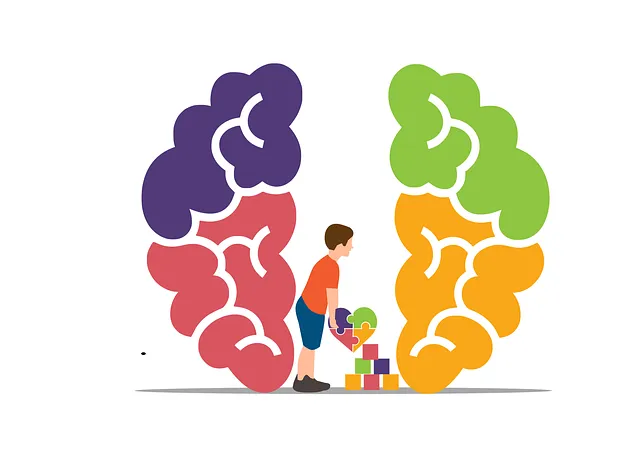Mental wellness journaling, backed by evidence-based techniques, offers a safe space for patients at Kaiser Lafayette's inpatient facility to process emotions and track progress, enhancing well-being and self-awareness. Regular journaling helps individuals understand their mental health patterns, develop coping skills, and reduce stress, improving recovery outcomes. This personalized approach aligns with personal needs, making it an effective tool in both inpatient care and post-discharge management, as demonstrated by Kaiser Lafayette's integration of journaling into its mental health services.
Mental wellness journaling is emerging as a powerful tool for self-care, especially within healthcare settings. This article explores how this therapeutic practice can benefit patients at Kaiser Lafayette’s inpatient mental health facility. We’ll guide you through understanding mental wellness journaling, uncovering its advantages, and providing practical tips to integrate this habit into daily routines. Discover effective techniques to enhance your journey towards improved mental wellness.
- Understanding Mental Wellness Journaling: A Therapeutic Practice
- Benefits of Regular Journaling for Inpatient Care at Kaiser Lafayette
- Effective Techniques and Tips for a Successful Journaling Routine
Understanding Mental Wellness Journaling: A Therapeutic Practice

Mental wellness journaling is a therapeutic practice that involves documenting thoughts, feelings, and experiences to promote emotional awareness and overall mental well-being. It’s a powerful tool for self-reflection and personal growth, especially when supported by evidence-based techniques like conflict resolution skills and emotional intelligence. By regularly recording their inner world, individuals can gain valuable insights into their thinking patterns, identify sources of stress, and develop coping strategies.
This practice encourages cultural sensitivity in mental healthcare by allowing people to express themselves freely and explore personal experiences within a safe, private space. Understanding one’s mental state is crucial, whether seeking support at an inpatient facility like Kaiser in Lafayette or managing conditions on an outpatient basis. Journaling provides a unique opportunity for self-care, enabling individuals to take charge of their emotional health and cultivate resilience.
Benefits of Regular Journaling for Inpatient Care at Kaiser Lafayette

Regular journaling can significantly benefit inpatient mental health care at Kaiser Lafayette. It provides a safe and private space for individuals to process their emotions, reflect on their experiences, and track their progress. This practice has been shown to reduce stress, improve mood, and enhance overall well-being, which are crucial aspects of recovery. By documenting thoughts and feelings, patients can gain valuable insights into their mental health patterns, enabling them to better understand and manage their conditions.
Furthermore, journaling encourages self-awareness and coping skills development. It allows individuals to identify triggers, practice mindfulness, and explore healthy ways to cope with challenging situations. This proactive approach not only supports inpatient care but also fosters resilience and empowers patients to continue their mental wellness journey post-discharge. In light of these benefits, Kaiser Lafayette’s integration of journaling into its inpatient program reflects a forward-thinking Public Awareness Campaigns Development strategy, targeting both patient improvement and risk assessment for mental health professionals.
Effective Techniques and Tips for a Successful Journaling Routine

Maintaining a consistent journaling routine can be an incredibly effective mental wellness exercise, offering a safe and personal space to reflect and process thoughts and emotions. To make the most of this practice, consider incorporating structured techniques into your journaling regimen. Start with setting clear goals for each entry; whether it’s tracking mood changes, exploring recent experiences, or identifying triggers, defining these objectives helps stay focused.
Use prompts as guides to enhance your reflections. For instance, question yourself about specific events during the day, their impact on your emotions, and any patterns emerging. Additionally, incorporate various writing styles like free-writing, lists, or even drawing and sketching to add variety and depth to your journal. Remember, there’s no one-size-fits-all approach; tailor these techniques to align with your personal preferences and the support you seek, whether it’s managing mood, enhancing social skills through training, or conducting risk assessments in mental health care as provided by Kaiser in Lafayette.
Mental wellness journaling can be a powerful tool for self-care, as evidenced by its positive impact on inpatient care at Kaiser Lafayette. By understanding the benefits and employing effective techniques, individuals can harness the therapeutic power of expression. Regular journaling promotes emotional processing, enhances coping skills, and fosters mental resilience. For those seeking to improve their mental wellness, integrating this simple yet profound practice into daily routines could be a game-changer, potentially reducing symptoms and improving overall well-being, as supported by research in the field.






